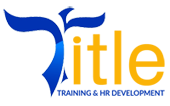| Code | Date | City | Fees | Register |
|---|---|---|---|---|
| T031 | May 12, 2024 - May 16, 2024 | Berlin | $ 5000 |
Register Course.. |
| T031 | August 11, 2024 - August 22, 2024 | Online | $ 3000 |
Register Course.. |
| T031 | November 10, 2024 - November 14, 2024 | Dubai – UAE | $ 5000 |
Register Course.. |
| T031 | February 23, 2025 - February 27, 2025 | Dubai – UAE | $ 5000 |
Register Course.. |
________________________________________________________________________________________________
Objectives
- Review the different types of pumps
- Describe the appropriate operation by learning the pump systems.
- Highlight the requirements for proper pump installation.
- Learn the importance and methods of pump maintenance
- Guide the participants to the right steps of pump selection and purchasing
- Discuss the effect of cavitations in pumps.
- Be familiar with the right procedure for pinpointing & eliminating pump problems.
- Have an overview and checklist of pump problems
The Delegates
- Maintenance, Operation, Production Engineers .
- Engineers, supervisory , controllers and technical staff involved in the monitoring maintenance and diagnostics of pumps
- Senior Technicians working with gas turbines should benefit from this course.
- Senior staff can update and refresh their knowledge by attending this course.
The Contents
- Introduction To Pumps :
- Basic pump theory
- General Safety Requirements
- Pump Performance Basic Terms
- Pumping Factors
- Classification Of Pumps :
- Dynamic pumps
- Centrifugal pumps
- Positive displacement pumps
- Reciprocating Pumps
- Piston, plunger, diaphragm pumps
- Rotary pumps
- Pump glossary
- Pumps Systems :
- Important characteristics of pump systems
- Energy and head in pump systems
- Static Head & Total Head
- Pump Characteristic Curve
- Pipe Friction Calculation
- Pumps Operation :
- Pump Start Up and Shut Down
- Priming of Centrifugal Pumps
- Parallel and Series Operation
- Abnormal Operation
- Capacity Regulation
- Pumps Drivers :
- Electric Motors
- Steam Turbines
- Hydraulic Turbines
- Gas Turbines
- Internal Combustion Engines
- Pumps Problems :
- Cavitations
- Check list for Centrifugal Pump Troubles
- Check list for Rotary Pump Troubles
- Check list for Reciprocating-Pump Troubles
- Pumps Maintenance :
- Overview of Maintenance Practice
- Pump Maintenance Procedure
- Friction, lubrication and wear mechanisms
- Adhesive wear, abrasive wear, fatigue and fretting
- Machinery life cycles
- Mechanical issues, balancing and alignment
- Statistical reliability analysis
- Root cause of, symptoms and detection mechanisms for imbalance
- Root cause of, symptoms and detection mechanisms for bearing problems
- Cavitations, causes and prevention
- Anti-friction bearings: types, lifetime, mounting, applications, related problems
- Plain and pad bearings, thrust bearings: operation, maintenance, incidents
- Mechanical seals, types, operation, related problems
- Performing a balance
- Vibration monitoring
- Vibration limits
- Lubricant monitoring
- Measurement devices, and what to monitor and where
- Centrifugal Pump: Construction Performance Maintenance Troubleshooting
- Positive-Displacement Pumps: Types, Performance, Troubleshooting
- Rotary Maintenance and Troubleshooting
- The role of condition monitoring in pump and compressor maintenance Diagnostic methods
- Capabilities and limitations of condition monitoring, and the need for a combined approach
- Field Procedures And Remedial Steps :
- The importance of plant inspection
- Onsite Inspection
- miscellaneous remedial steps
- Course summary .
Notes:
- Great Discount for companies and governmental Organizations .
- All programs are held in five star hotels .
- All lecturers have sufficient knowledge and experience to implement the programs at an optimal level .
- Large package of services is offered to the participants .
The Discount
10% in case of Three P. (or more)
